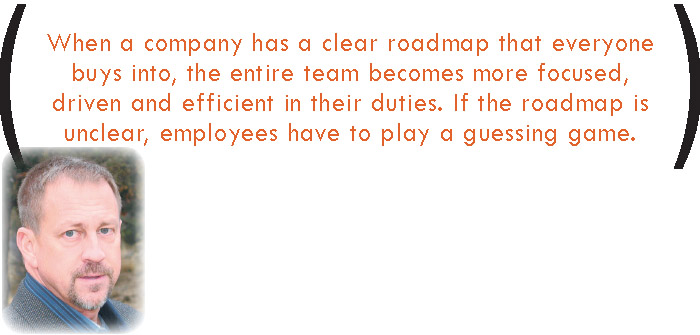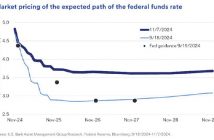I have always had a deep desire to be part of something bigger than myself, and I recognize I am not alone. Since I am passionate about business ecosystems, I believe there is no better means to deliver on that aspiration than as leader in your own business.
When a company has a clear roadmap that everyone buys into, the entire team becomes more focused, driven and efficient in their duties. If the roadmap is unclear, employees have to play a guessing game. This can be discouraging, inefficient and will certainly negatively affect the bottom-line. The most common mistake business leaders make is that they believe all the answers are in their head. That may be true, but when limited to the CEO/Leader’s headspace, it does little for the organization to be able to implement a complex and interconnected plan.
Building a rock-solid strategic plan for your business takes preparation. Through my own trials and errors and leading companies through a proven process, I have witnessed the powerful benefits a comprehensive strategic plan can deliver. Here are a few recommendations of how to approach
the process:
Set-up the activity for success:
1. Take the time to do it right. A common mistake is not setting aside enough time. At a minimum, schedule at least one full eight-hour day in a comfortable place where all key staff will be involved in nothing but strategic planning. Give it more time if needed. A huge benefit in this process is having buy-in by key staff, which takes time.
2. Be “part of” the group. Bring in an outside professional who is experienced with strategic plan facilitation. This way the leader can be an active participant along with everyone else. It is very difficult to try and facilitate yourself and also contribute without being impartial or dominating. This levels the playing field for a transparent process.
3. Lead by modeling. As the leader of your business, stress how critical it is that participants are open and honest about how they think and feel about the company’s future. Allow everyone to speak freely and be equally included. In the end, they will be more invested in fulfilling the outcomes by being deeply involved in the process.
Define the Non-Negotiables:
1. Define your “Why” (best defined by Simon Sinek’s 2010 Ted Talk (www.youtube.com/watch?v=u4ZoJKF_VuA). Call it whatever you want, but make sure you can authentically explain to yourself and others why your company exists. Why do your customers buy from you? Why does it matter what you are doing? This is the most important and difficult part of the process. Once defined however, this becomes the soul of your company. It is so powerful that it develops into the filter in which you run all your challenges through in order to clarify decision making and/or messaging.
2. Articulate your Core Values (Beliefs). Between three-seven only. People buy from you when they feel aligned with your beliefs. Fully vet these core values to make sure they complement your Why.
3. Set a 10-year target. This does not have to be exact. The concept here is to ensure you have a True North that keeps the company on an au-
thentic trajectory.
Put it all into action — without proper and consistent implementation, all your strategic planning will go to waste:
1. Set 1-year goals for the company. Limit to 3-7 major goals (called “rocks” in Gino Wickman’s book Traction). Goals/Rocks must be measureable and time-bound with clear outcomes. This aligns the entire team on what is really big and important.
2. Establish quarterly goals for all key staff. Again, limit to three-seven rocks for each person. Each rock will have a completion time and is often tied to other team member’s rocks. Goals must be achievable and realistic.
3. Meet weekly to monitor if rocks are on-target or off-target. If off-target, resolve how and who can get it back on schedule. This builds a culture of accountability for your team. Refrain from allowing staff to procrastinate or miss deadlines. This will only foster a culture where mediocrity is tolerable.
Lastly, the above elements should be boldly posted so the entire company can see how the major initiatives for the year/quarter are being achieved. The benefit of making your plan highly visible is that it underscores the necessity for accountability by the entire team to reach the defined outcomes.
Are you ready to take your company to a new results-oriented stage of development? Don’t be afraid to schedule your strategic planning session now and witness the power and growth it will bring your business.
With an open mind, patience, and trust you too can develop a clear roadmap for your company that will confidently inspire your entire team to do their best!
Eric Meade is owner of Eric Meade-Purposeful Consulting www.ericmeadeconsulting.com where he specializes in financial/leadership/cultural consulting for small businesses.
Ericmeade1@gmail.com, 541-948-0578, www.ericmeadeconsulting.com





